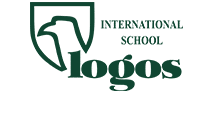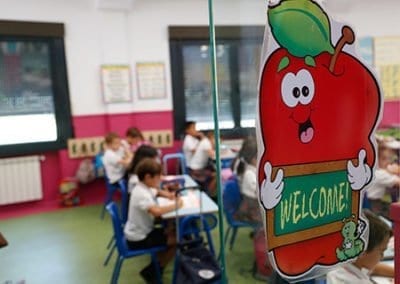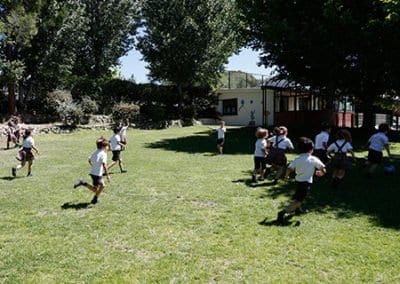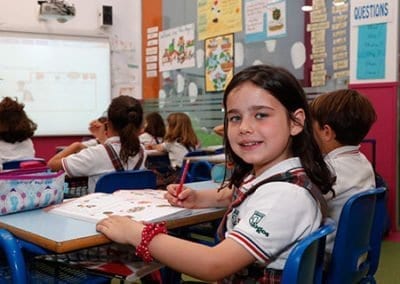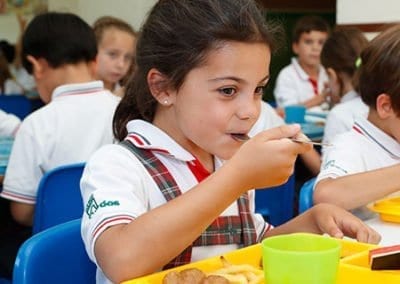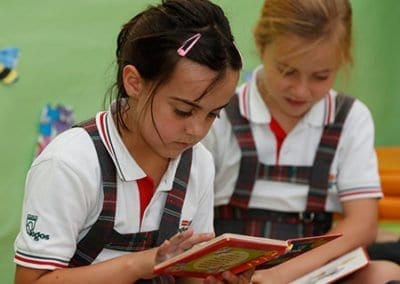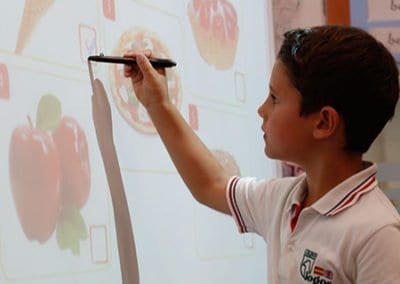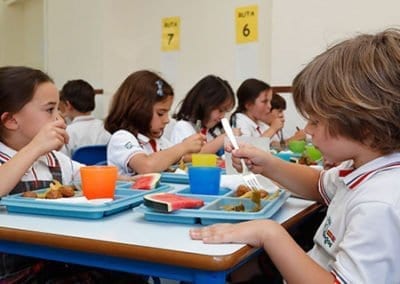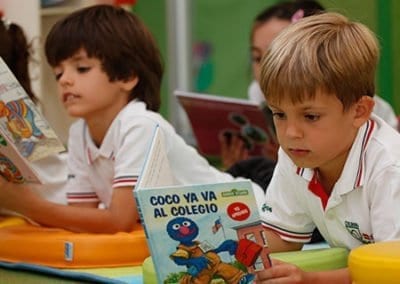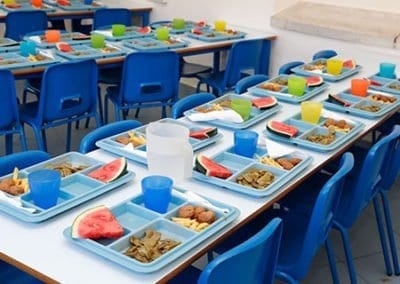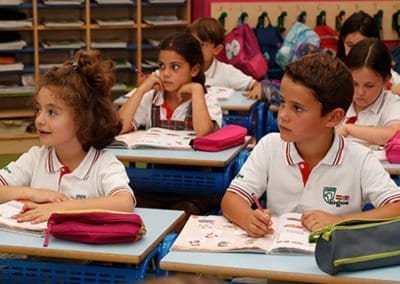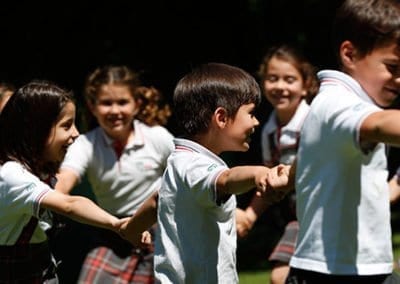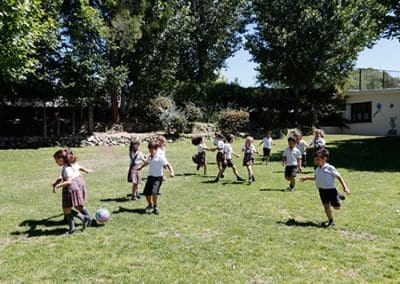El Ruedo
Instalaciones
Por lo que respecta al paso de los niños de Nursery School a International School, en el Colegio Logos tenemos en cuenta que tengan su propio ambiente de patio, clases y comedores tanto en 1º como en 2º de primaria; disponiendo de zonas privilegiadas dentro del colegio. Facilitándoles la adptación a esta nueva etapa de forma pausada y equilibrada acorde con su desarrollo.
Este paso a primaria es una prolongación del aprendizaje y los proyectos trabajados en el campus de Logos Nursery dentro de un clima de valores donde destacan el respeto, la solidaridad, tolerancia y responsabilidad personal.
La comunicación alumno-profesor continua siendo dinámica y cercana, así como con las familias. Un equipo de profesores consolidado, dinámico y con amplia experiencia y espítitu vocacional.
El Ruedo: un edificio exclusivo que facilita la adpatación “al cole de mayores” de nuestros recién graduados en Infantil.
PROYECTO
Durante la etapa de Primaria, la enseñanza en el Colegio Logos, es bilingüe, en Inglés y Español. La inmersión lingüística ha demostrado ser la forma más eficaz y natural de aprendizaje. El programa bilingüe se implantó en el Centro en el año 1984 por lo que somos pioneros en este aspecto.
- Los profesores de Inglés y español pasan dos cursos con los niños. Esto facilita:
– Poder sacar lo mejor de nuestros alumnos.
– Conocerles muy bien y establecer lazos de confianza familia-colegio
– Detectar más fácilmente cualquier medida especial que puediera necesitar. - Informática en inglés que se hace con la profesora de informática y a através de ipad en 1º de primaria y en el Laboratorio de informática en 2º de primaria.
- Todos Los niños de primaria tienen su aula de inglés y español. Concretamente en 1º y en 2º tienen también su aula de Educación artística. La Educación Física, Artística y la expresión drámática son pilares muy importantes de la Formación Integral en Logos y esto se ve reflejado siempre en nuestra forma de trabajo.
- Clases de conversación de inglés semanalmente.
- Aprendizaje a través de gamelogia y aplicaciones para aprender tanto en Inglés y Español a través de IPAD semanalmente.
- Creemos firmemente en una formación en valores, donde se escucha y se habla con el alumno desde 1º de primaria. Se le enseña a valorarse y respetarse a sí mismo, a los demás y al mundo que le rodea.
El aprendizaje tiene una base significativa con múltiples recursos, tanto humanos como materiales.
Logos International School se podría definir como un colegio tradicionalmente moderno que quiere estar siempre en contínua evolución y comprometido con el mundo que le rodea . Los profesores se forman constantemente e implementan nuevas formas de trabajo en las aulas razonadamente y de acuerdo siempre a la realidad de nuestros alumnos.
Las aulas cuentan con los recursos más modernos del panorama educativo, ordenadores, Ipads, pizarras digitales en las que se visualizan tanto contenidos de programas externos y aplicaciones específicas para el curso correspondiente.
Metodología
La metodología que usamos es AICLE ( ( aprendizaje Integrado de Contenidos y Lengua Extranjera) y la unimos a metodologías activas, variadas y flexibles que se basan en “aprender haciendo” siempre consensuadas en reuniones de departamento y procurando que el niño se familiarice con cada una de ellas para que de este modo pueda desarrollar a lo largo de primaria las competencias clave del currículo y así potenciar al máximo el aprendizaje por inteligencias.
Las materias impartidas siguen la siguiente tabla:
Áreas de Español | Áreas de Inglés |
| Lengua Castellana | Lengua Inglesa |
| Matemáticas | Ciencias de la Naturaleza |
| Religión / Valores sociales y cívicos | Ciencias Sociales |
| Educación Artística | |
| Educación Física | |
| Informática |
La tutoría es uno de los pilares básicos sobre los que se sostiene la metodología del centro.
Los tutores:
- Coordinan las relaciones entre profesores y alumnos.
- Favorecen la integración, los intereses y las actividades del grupo.
- Orientan al alumno en su proceso de crecimiento y maduración intelectual y controlan su rendimiento académico.
- Dedican una atención especial a la orientación personal y profesional de sus tutorandos.
- En contacto directo con las familias, informan a los padres sobre la situación de sus hijos y buscan, junto a ellos, las mejores soluciones a los problemas personales y académicos.
ACTIVIDADES
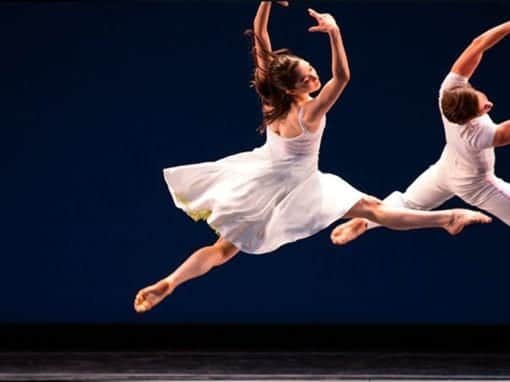
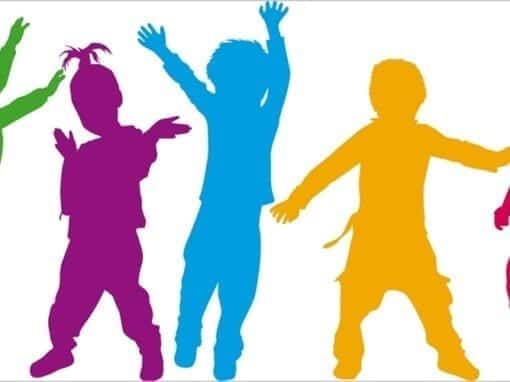
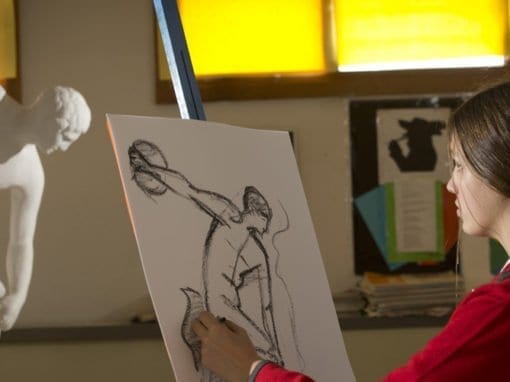
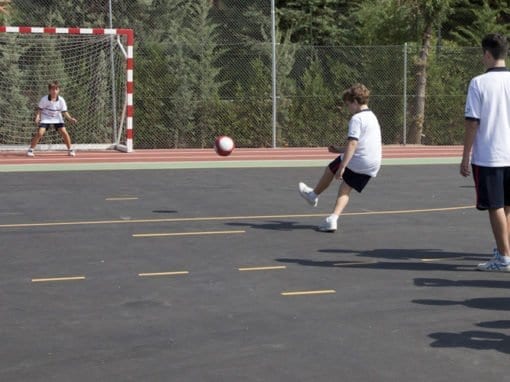
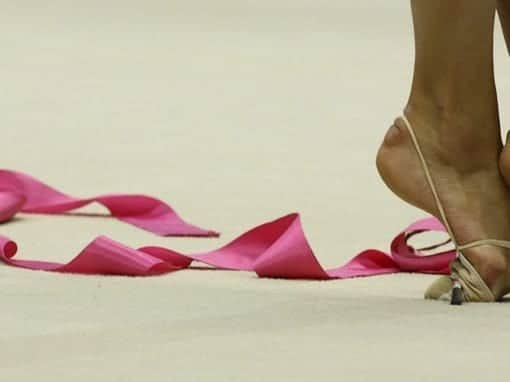
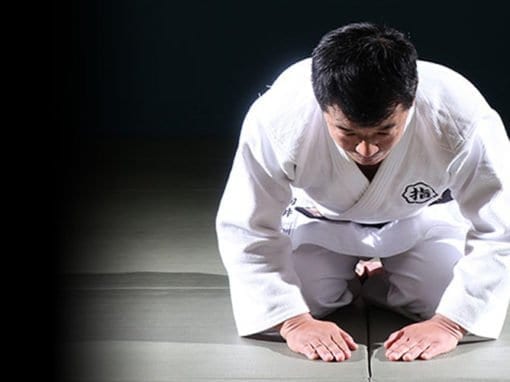
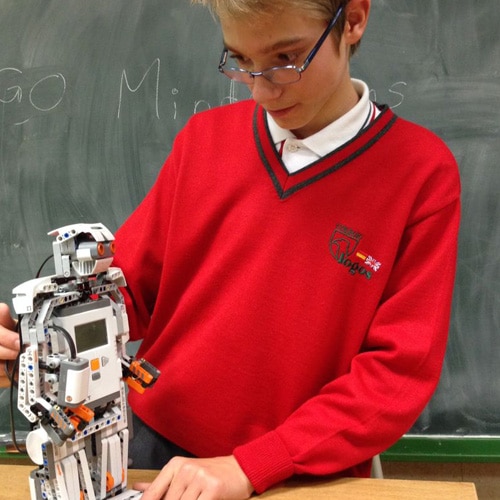
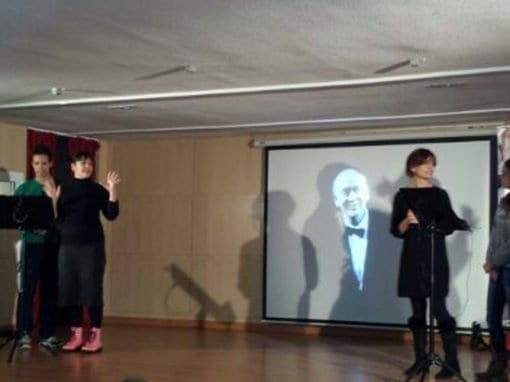
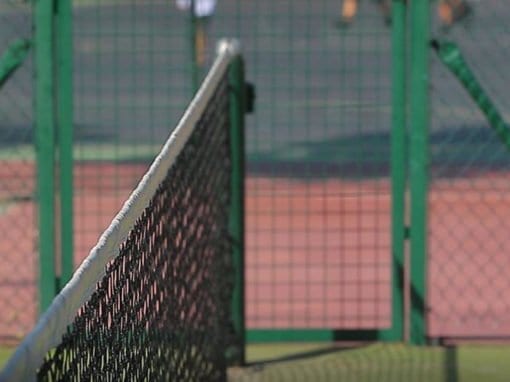
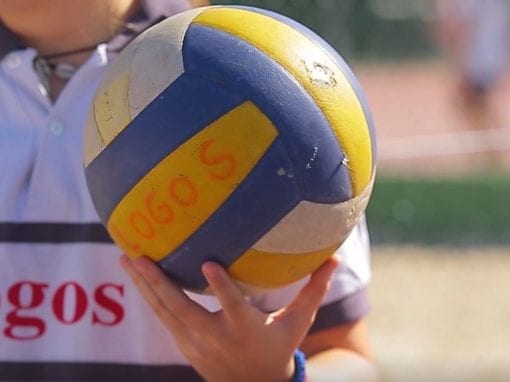
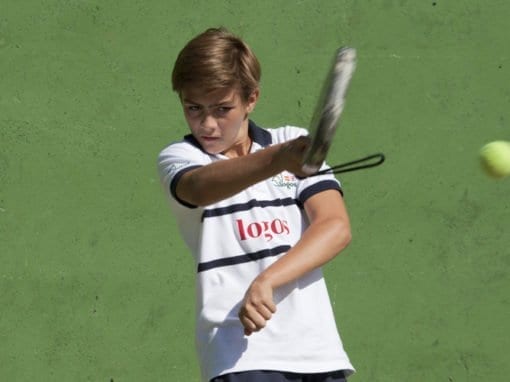
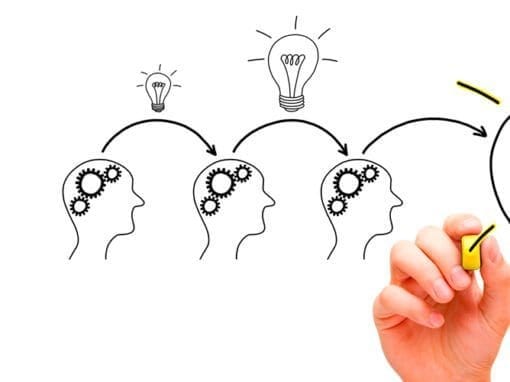

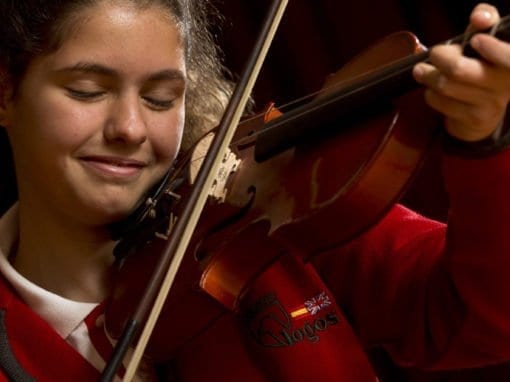
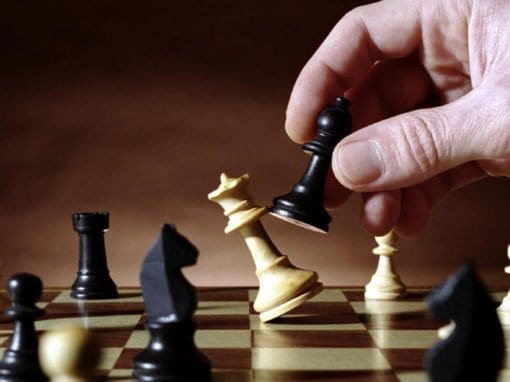
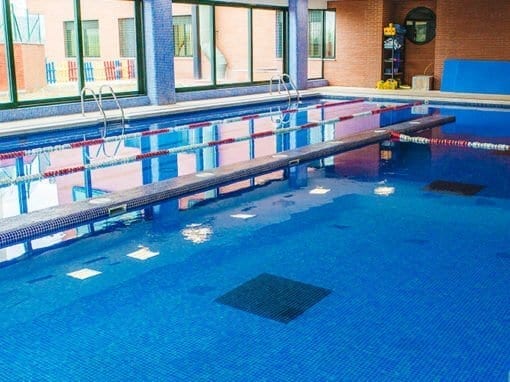



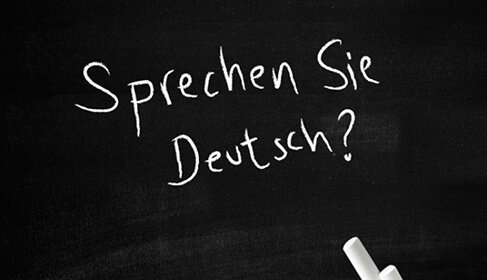



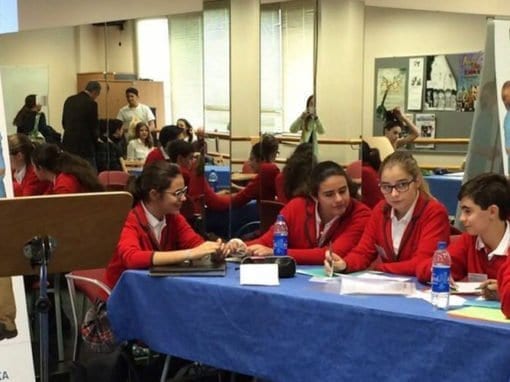
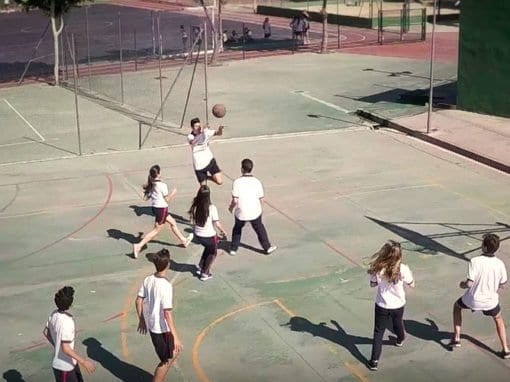
ESPACIOS
